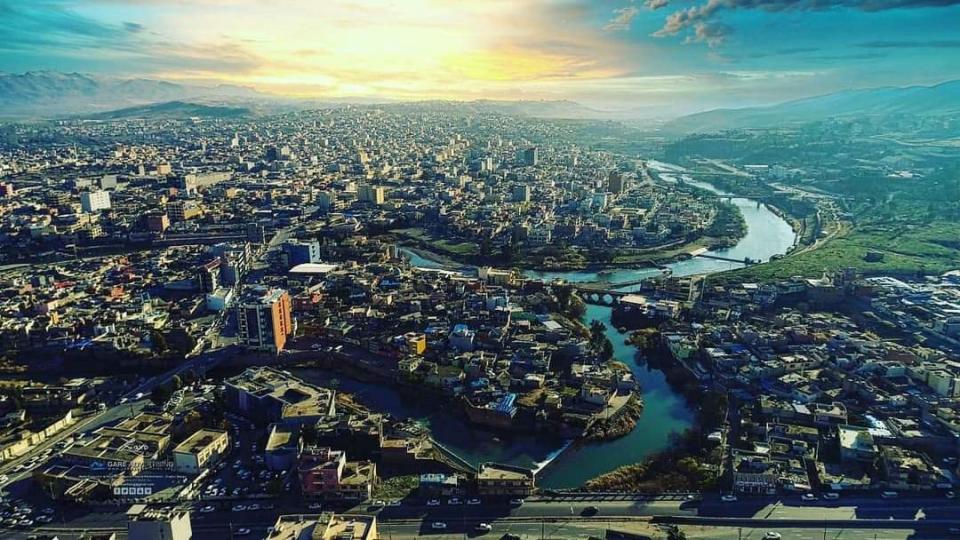This year’s unprecedented attacks against Iraqi Kurdistan have had detrimental effects on the autonomous region’s energy and tourism sectors.
On July 20, Iraqi tourists converging on Zakho’s Parakh tourist resort in Iraqi Kurdistan’s Duhok province suddenly found themselves coming under heavy artillery fire. The devastating bombardment left nine tourists dead – including a 1-year-old girl – 33 injured, and Iraqi Arabs and Kurds outraged.
While Turkish airstrikes and bombardments have killed and maimed civilians in Iraqi Kurdistan in the past, this particular attack was unprecedented because of its target and the number of civilians killed in a single incident. Turkey denied responsibility. However, the type of artillery shells fired and the location of the attack make its denials highly dubious, at the very least.
Iraqi Kurdistan has suffered many setbacks, such as the war against the Islamic State (ISIS), getting its tourism sector off the ground. Resorts like Parakh offer Iraqis a respite from the unbearable summer heat, chronic electricity blackouts, and harsh, debilitating dust storms. These resorts have also provided employment for local Kurds and a source of revenue for the autonomous region other than the export of oil, which neatly fits into the incumbent Kurdish government’s goal of diversifying the economy.
Duhok has had ambitious plans to expand the number of its resorts and tourist sites. At least 20 new tourist sites were built in the province since the start of this year alone to accommodate a growing number of tourists visiting from neighboring Turkey.
However, the Parakh massacre dealt a major blow to autonomous region’s tourism sector. Tourism from Iraq dropped by an enormous 90 percent in Duhok and 70 percent in Zakho. (By contrast, tourism in Duhok increased by 77 percent in June 2021 compared to the previous month.) An estimated 300 people who worked in Zakho’s tourist resorts have lost their jobs. If there isn’t a significant recovery in the coming spring and summer seasons, that could spell a major setback for the sector when it was looking like it could make a swift post-Covid rebound and even expand.
Iraqi Kurdistan’s critical energy sector has also come under unprecedented attack this year, which could have severe economic consequences for the future of the autonomous region and its inhabitants.
On March 13, the Iraqi Kurdish capital, Erbil, was subjected to an unprecedented missile attack. Ballistic missiles struck the private residence of Baz Karim Barzanji, a businessman working on developing a pipeline for gas exports.
Iran’s Islamic Revolutionary Guard (IRGC) readily claimed responsibility for the attack, baselessly claiming that it had targeted an Israeli base. In reality, Iran attacked Erbil, and Barzanji’s residence in particular, to demonstrate its vehement opposition to Iraqi Kurdistan’s plan to supply Turkey and Europe with natural gas. Barzanji’s KAR Group was working to develop a pipeline for this purpose. Iran opposed the project since it did not want competition from Iraqi Kurdistan and showed its willingness to resort to brute force to get its way.
The move also came after Iraqi Kurdistan’s leading party, the Kurdistan Democratic Party (KDP), entered into a tripartite political coalition led by the populist Iraqi Shiite leader Muqtada al-Sadr. Sadr, who won the most seats in Iraq’s October 2021 parliamentary elections, sought, through a sheer parliamentary majority, to form an Iraqi government without the Iran-backed political factions organized under the umbrella of the Coordination Framework.
In response, the Coordination Framework mounted a “judicial coup” by using the country’s Federal Supreme Court (FSC) to prevent Sadr from forming his majority government, by changing the requirements for selecting the Iraqi president and forming a new government, and ruling against Iraqi Kurdistan’s oil sector. As Iraq analyst Michael Knights put it, through this action, the Framework did not “hesitate to risk taking half a million barrels of oil off the world market and plunging five million inhabitants of the Kurdistan Region into economic crisis through its courtroom (alongside rocket and drone) attacks on Kurdistan oil sales.”
U.S. contractors working on an expansion project of Iraqi Kurdistan’s Khor Mor gas field, which aims to double production, have left due to repeated rocket attacks, undoubtedly perpetrated by Iran-backed militias. The KAR Group pipeline intended to deliver gas from Khor Mor to Duhok near the Turkish border. As with the March 13 Erbil attack, these repeated rocket attacks clearly aim to prevent this from becoming a reality and prevent Iraqi Kurdistan from independently developing and benefitting from its natural resources.
These flagrant attacks threaten the security of Iraqi Kurdistan, a relatively stable enclave in a notoriously volatile part of the world.
While rocket attacks terrorize foreign contractors out of the region, the FSC ruling has also compelled the oil service companies Baker Hughes, Haliburton, and Schlumberger to pledge not to seek any new tenders in Iraqi Kurdistan. In late August, Baghdad threatened to take legal action against buyers of crude Iraqi Kurdish oil, meaning other companies could be soon forced to follow suit.
A Reuters exclusive revealed that oil production in Iraqi Kurdistan “could almost halve by 2027 if there is no new exploration or major investment in the sector”. That would prove disastrous for the autonomous region and its people (more of whom may choose to try and migrate to Europe illegally if economic conditions worsen as a direct result) since it still relies on oil exports for up to 85 percent of its budget. The region had hoped increased gas production could enable it to weather the negative effects of any decrease in oil sales, but that too is imperiled by these constant rocket attacks.
These flagrant attacks threaten the security of Iraqi Kurdistan, a relatively stable enclave in a notoriously volatile part of the world. They could have profoundly negative long-term ramifications for the wider region if allowed to continue.
Image: Shexsindi77

